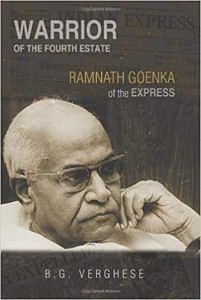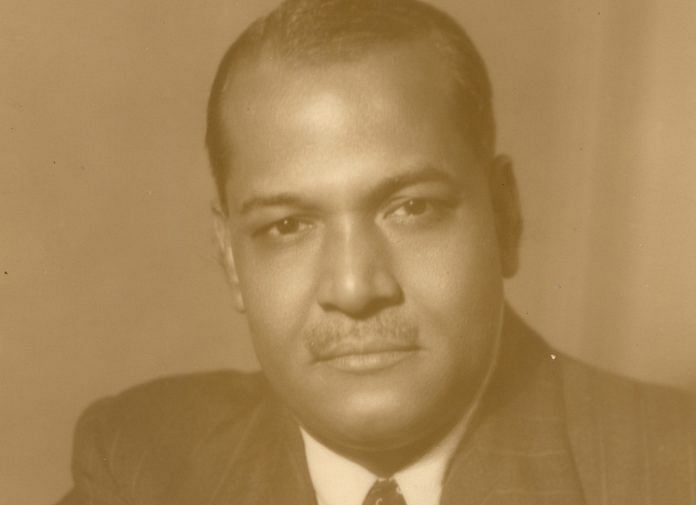Goenka was a stingy paymaster, unable to keep the best talent that The Indian Express attracted, writes B.G. Verghese.
RNG (Ramnath Goenka) did not use the newspapers he owned for self-glorification. He barred his papers from publishing news reports or photographs of himself or any member of his family. When the Express was sent a picture of one of his granddaughters’ wedding, he withheld its publication on the ground that a family wedding did not make news. But when it came to what he considered to be the national or public interest and freedom of the press, there would be no compromise. He was possibly the only proprietor to join the celebrated journalists’ march from India Gate to the Boat Club along Delhi’s Raj Path in protest against the 1988 Defamation Bill to curb the press.
He gave his editors considerable freedom within a broad policy framework, allowing for regional variations, as he believed that the bedrock of India’s unity lay in respecting its diversity. This was why, though a staunch and devout Hindu, he did not cling to any kind of religious fundamentalism or exclusive cultural nationalism. Ultimately, spirituality mattered more than ritual or religiosity. Though he drew close to the BJP and RSS on the rebound from the Congress, and was closely associated with some of their leaders, he wished the Express to be truly independent and never become or be seen to become an organ of any particular party.
During the Emergency, for example, he was particular that official news should not be suppressed merely because it was not to the liking of the paper. The people must know and had a right to know. Likewise, he was very agitated when, on one occasion, the Delhi edition of the Express failed to carry the news of a raid on a large industrial house whose scions were close to him. He ranted that he would be accused of accepting favours to cover up corruption and could tolerate anything but that!
The Express had a certain élan and panache that owed something to his editors and reporters but perhaps more to his ideas and ideals and strong editorial backing his staff could expect from him. (Former editor-in-chief V.K.) Narasimhan, who emerged a hero during the Emergency, said as much. Where RNG failed was as a manager and conservator. He did not consolidate what he had so painstakingly created. There was neither delegation, not even to Bhagwandas (Goenka’s son), nor professionalism in the management. And as he was ruefully to admit to Saroj Goenka (wife of Bhagwandas) rather late in the day, the Express continued to run like a ‘Marwari shop’. He was a stingy paymaster and unable to keep the best talent that the Express attracted. He also believed in creating an element of tension among his senior staff, playing one off against the other, so that they would turn to him and he might reign supreme. He would listen to gossip and had ‘four ears but only two eyes’. In politics as in life, he always kept a line open to his adversary. Prudence demanded having an exit.
He was a lonely man who lived a lonely life, wanting to be loved but unable to give the love of a father or grandparent that would have provided the spark of family warmth that was missing in his life. His involvement in public life from a remarkably young age and the peripatetic routine his multi-centred newspaper chain and sometimes corporate interests entailed, here today, there tomorrow, kept his body and mind in a constant whirl, leaving little quality time for the family and especially its younger members. Of course, he was always there, a stern paterfamilias who provided for them. He cared in his own way. But it was the Express that became family and the penthouse and the Sunder Nagar Guest House his home from home.
 This extract from ‘Warrior of the Fourth Estate, Ramnath Goenka of the Express’ by B.G. Verghese has been published with due permission from Penguin Books.
This extract from ‘Warrior of the Fourth Estate, Ramnath Goenka of the Express’ by B.G. Verghese has been published with due permission from Penguin Books.



